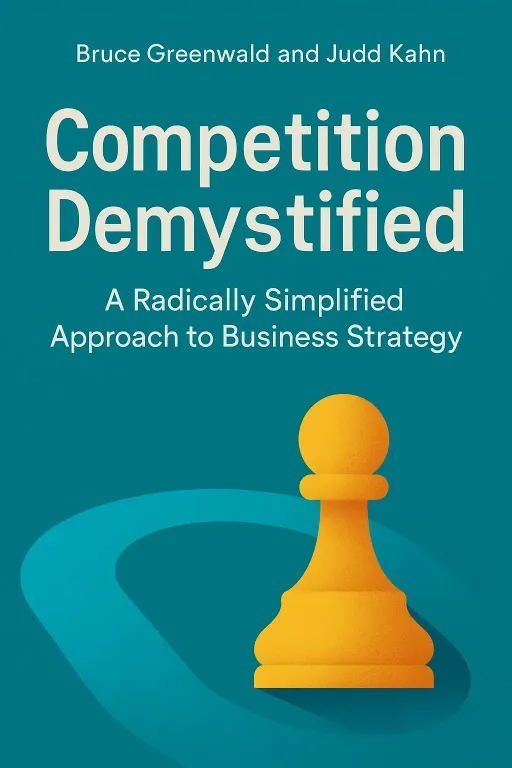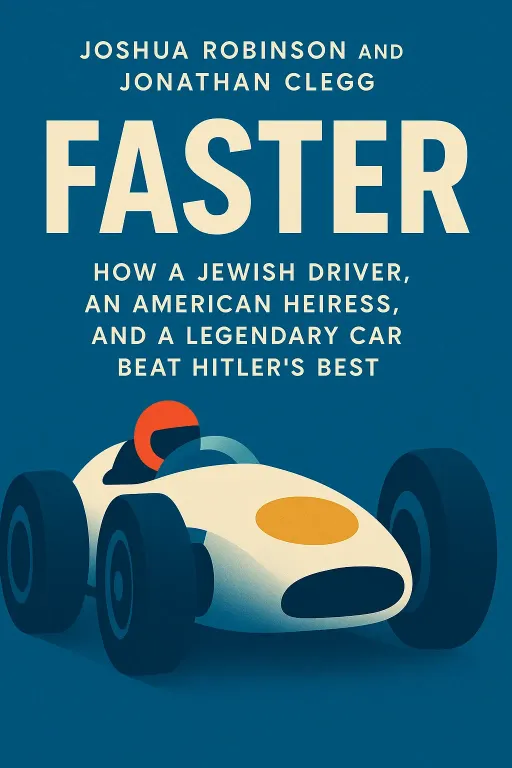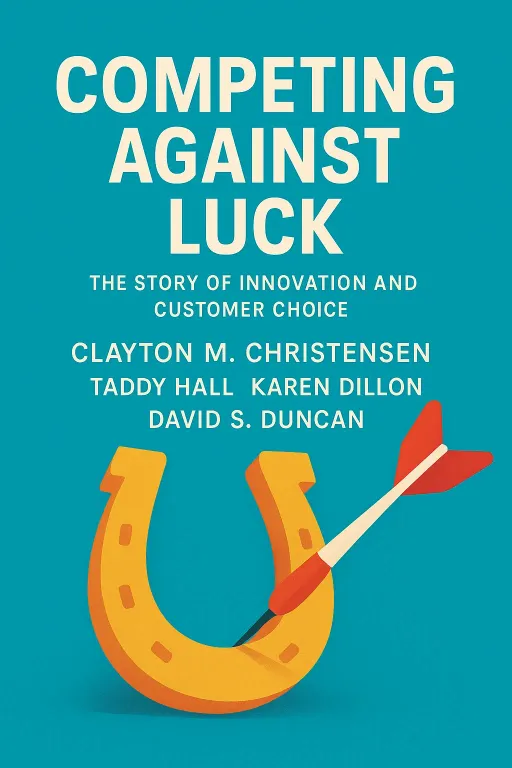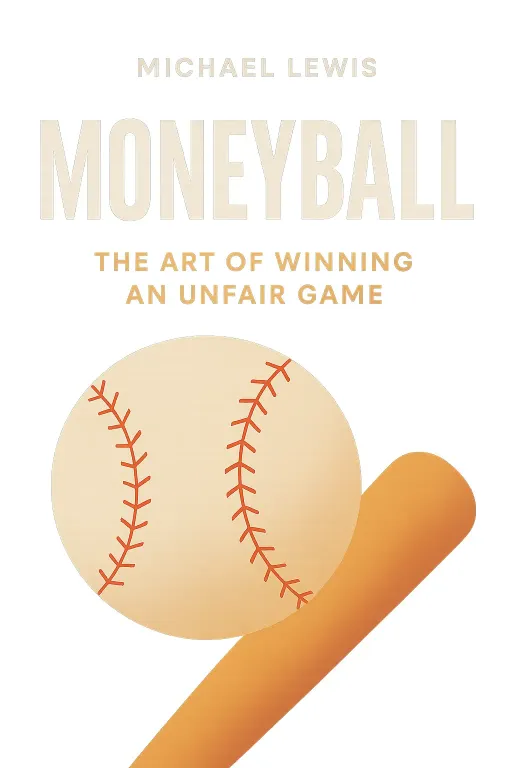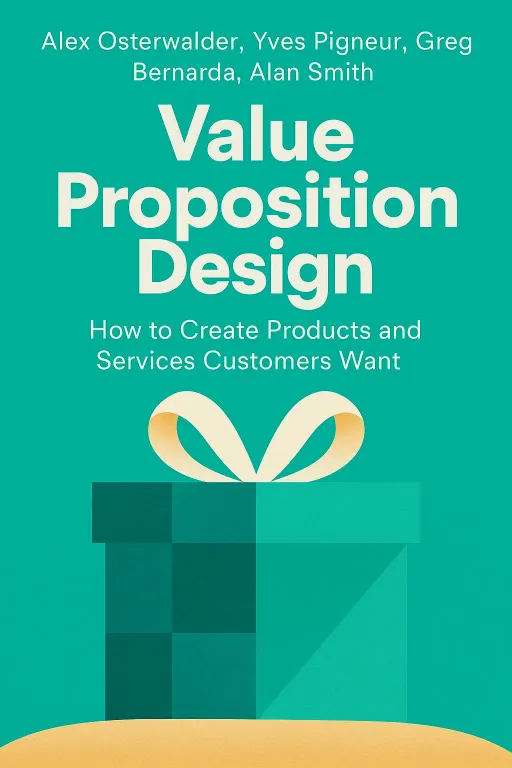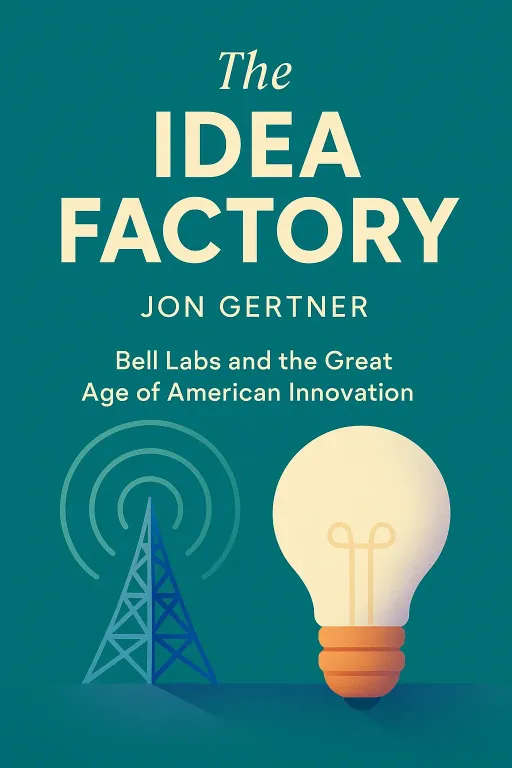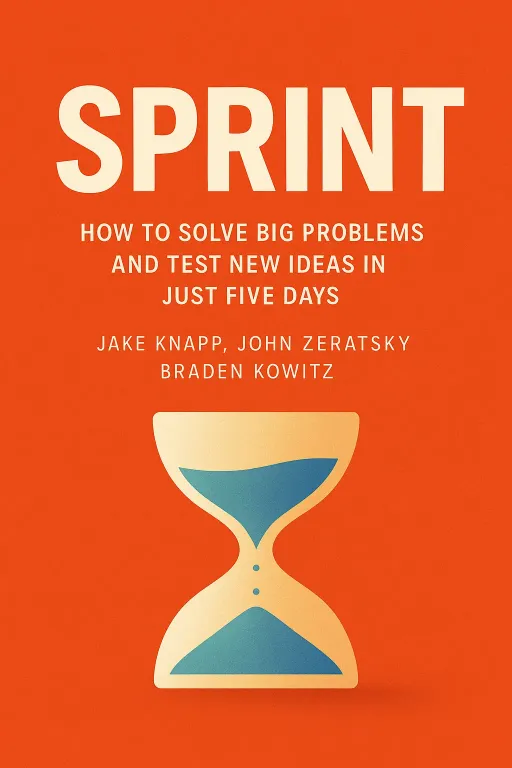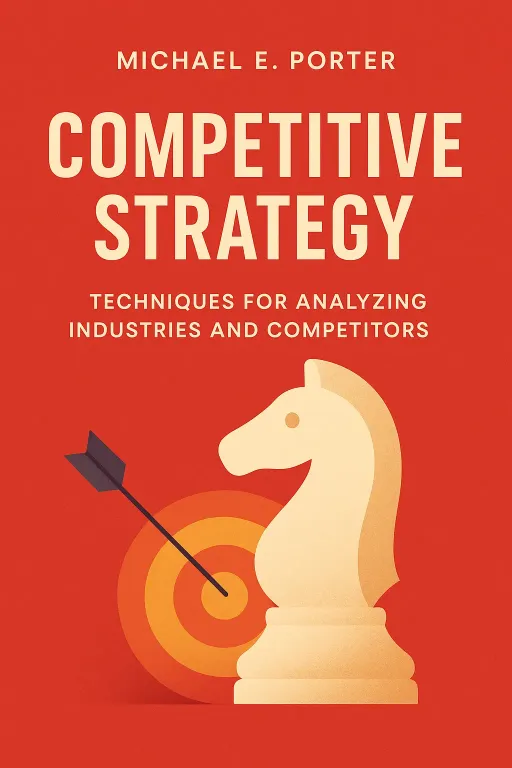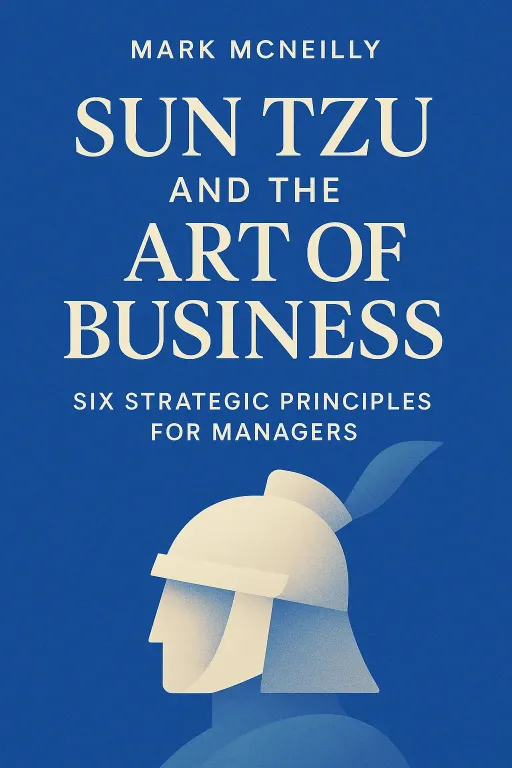
Business Judo, Not Boxing
10 minSix Strategic Principles for Managers
Golden Hook & Introduction
SECTION
Joe: Most business leaders think competition is about being the strongest. They’re wrong. The most successful companies don’t win by fighting harder; they win by making the fight irrelevant. It’s a 2,500-year-old secret that’s more potent than ever. Lewis: Making the fight irrelevant? That sounds like a paradox. Where are we getting this from? Business feels like a constant fight. Joe: It comes from Mark McNeilly's classic book, Sun Tzu and the Art of Business. What's fascinating is that McNeilly isn't just a business professor; he has a deep background in military history and corporate strategy at places like IBM and Lenovo. Lewis: Oh, I see. Joe: He saw firsthand how these ancient battlefield principles were playing out in boardrooms and market skirmishes, which is what makes his take so grounded and practical. It's received very positive reviews for this exact reason—it connects this ancient, almost mystical text to the brutal reality of the modern marketplace. Lewis: Right, so he's not just an academic theorizing. He's seen this in the trenches, so to speak. I’m intrigued. So what’s the big idea? How do you win without a fight?
Win All Without Fighting: The Art of Capturing Markets, Not Just Battles
SECTION
Joe: The first and most important principle McNeilly pulls from Sun Tzu is "Win All Without Fighting." The direct quote from Sun Tzu is, "Your aim must be to take All-under-Heaven intact... This is the art of offensive strategy." Lewis: Okay, "take All-under-Heaven intact." What does that mean in business terms? Take the whole market without breaking it? Joe: Exactly. It means your goal isn't to scorch the earth. It's not to engage in a bloody price war that leaves you and your competitors wounded and the entire industry's profitability in ruins. The goal is to achieve market dominance while keeping the market itself—the "kingdom"—prosperous and valuable. Lewis: That sounds great for a 2,500-year-old scroll, but in the real world, how does a company 'win' without a fight? Aren't you always fighting for customers, for talent, for market share? It feels like a zero-sum game. Joe: That's the perfect question, and it brings us to one of the most infamous business blunders of the 90s, a day they called "Marlboro Friday." It’s a perfect case study of what happens when you do the exact opposite of what Sun Tzu advises. Lewis: "Marlboro Friday"? Sounds ominous. What happened? Joe: Well, in the early 1990s, Philip Morris, the owner of Marlboro, was a titan. Marlboro was one of the most profitable brands in the world. But they were starting to lose a little bit of market share to cheaper, discount cigarette brands. So, on April 2nd, 1993, the CEO decided to make a move. Lewis: A power move, I'm guessing. Joe: A brute force move. He announced a 40-cent price cut per pack, a massive 20% reduction. The idea was to crush the discount brands and reclaim their share. They based this huge decision on a single market test in Oregon. Lewis: Okay, but a market test sounds reasonable. What went wrong? Joe: The test was fatally flawed. It wasn't run long enough to see how competitors would react. Philip Morris assumed the smaller brands couldn't afford to match their cut. They completely failed to anticipate the response. Lewis: And what was the response? Joe: Utter chaos. Their main rivals didn't just match the price cut; they cut their prices even more drastically. Instead of a swift victory for Marlboro, it triggered an all-out, industry-wide price war. The very thing Sun Tzu warns against. Lewis: Oh man. So what was the damage? Joe: Catastrophic. On that single day, "Marlboro Friday," Philip Morris's stock plummeted, wiping out $13.4 billion in market value. The company ended up losing over a billion dollars in profit that year. It led to them laying off 14,000 employees and closing forty plants. The CEO who made the call? He was forced to resign. Lewis: Wow. All from one decision. They tried to win a battle and ended up torching their own kingdom. Joe: They torched the entire kingdom. The profitability of the whole industry was damaged for years. This is where some critics of applying military strategy to business have a point, but McNeilly handles it well. The critics say the 'war' analogy is tricky, right? Because in business, you share an ecosystem. If you poison the well, you have to drink from it too. Lewis: That’s a great way to put it. The airline industry feels like a perpetual Marlboro Friday. They compete so fiercely on price that nobody makes any money, and the customer experience suffers. Joe: Exactly. They are constantly engaged in battles that destroy the value of the market. A Sun Tzu strategist would look at that and say, "This is madness." The goal is to win, but to win smartly, preserving the prize. Which leads directly to the next principle, which is how you do it.
Avoid Strength, Attack Weakness: The 'Water' Strategy for Outmaneuvering Goliaths
SECTION
Joe: Philip Morris attacked their competitors' strength—price—and destroyed the whole field. A true Sun Tzu strategist does the opposite. They follow the principle of "Avoid Strength, Attack Weakness." Sun Tzu uses a beautiful metaphor for this. He says, "An army may be likened to water, for just as flowing water avoids the heights and hastens to the lowlands, so an army avoids strength and strikes weakness." Lewis: I like that. Be like water. So it’s less like a boxing match where you're trading blows, and more like a game of chess, where you're not trying to knock out the king directly, but to control the board by finding the undefended squares. Joe: That's a perfect analogy. And McNeilly gives a brilliant modern example of this principle in action by contrasting two retail giants: Kmart and Wal-Mart. Lewis: The classic retail showdown. Joe: Right. In the early 90s, Wal-Mart was expanding from its rural roots into Kmart's urban territories. Kmart, feeling the pressure, decided to fight back. They launched a massive, $3 billion campaign to revamp their stores and, most importantly, to attack Wal-Mart head-on. Lewis: How did they attack? Joe: They attacked Wal-Mart at its strongest point: its low prices. Kmart initiated huge price cuts across thousands of items to match Wal-Mart. They tried to go strength-on-strength. Lewis: So Kmart tried to out-punch the heavyweight boxer in the ring. I have a feeling I know how this ends. Joe: You're right. It was a disaster for Kmart. Wal-Mart, with its legendary supply chain and cost structure, just matched the prices without breaking a sweat. A Wal-Mart manager at the time famously said, "What that means is that in an all-out price war they'll go broke 5% before we will." Lewis: That's brutal. So Kmart bled money, and Wal-Mart just absorbed the hit? Joe: Exactly. Over the next five years, Kmart's market share plummeted from 35% to 23%. Its profits vanished. The CEO was fired. Meanwhile, Wal-Mart's market share doubled to 40%, and its stock quadrupled. Kmart attacked strength and was annihilated. Lewis: Okay, so that's the 'what not to do.' How does Wal-Mart's own story show the other side of this? How did they 'attack weakness'? Joe: That's the beautiful part of the story. Wal-Mart's initial, brilliant success was built on the exact opposite strategy. When Sam Walton started, he didn't go after the big cities and try to fight Sears and Kmart head-to-head. That would have been attacking their strength. Lewis: Right, they were the kings of the urban and suburban markets. Joe: Instead, Wal-Mart was like water. It flowed to the lowlands, to the places the big retailers ignored. They targeted small, rural towns where their only competition was a local Mom & Pop store. They were attacking the enemy where they were weakest, where they weren't even looking. Lewis: So they were like a guerilla fighter, picking battles they knew they could win in places the big armies considered unimportant. Joe: Precisely. They used their immense buying power and lean distribution to overwhelm these small, undefended markets one by one. By the time the big players like Kmart even realized what was happening, Wal-Mart had built an unstoppable empire by surrounding them. They avoided strength, attacked weakness, and won without a costly, direct war. Lewis: That's fascinating. It’s a completely different way of thinking about competition. It’s not about being the most aggressive, but the most intelligent. Joe: It's the core of the whole philosophy. It's how innovators win. Think about CNN, ESPN, or MTV in their early days. They didn't try to create sitcoms to compete with the big three networks. They attacked a weakness—the unfulfilled need for 24-hour news, sports, or music. They flowed into empty space.
Synthesis & Takeaways
SECTION
Lewis: So it seems the two ideas are really two sides of the same coin. "Winning without fighting" is the grand strategic goal, the 'what.' And "avoiding strength to attack weakness" is the practical, on-the-ground way you achieve it, the 'how.' Joe: You've got it. And when you put them together, it completely reframes what it means to be a 'strong' company. It’s not the one with the biggest budget or the loudest marketing. It’s the one that understands the terrain—the market, the customer, the competition—so deeply that it can achieve its objectives with the least amount of force. Lewis: It's about efficiency of energy. Why punch a brick wall when you can just walk around it? Joe: Exactly. Sun Tzu has another quote that captures this perfectly. He says, "Therefore when using troops, one must take advantage of the situation exactly as if he were setting a ball in motion on a steep slope. The force applied is minute, but the results are enormous." Lewis: A tiny nudge at the right spot creates an avalanche. That's a powerful image. So for anyone listening who's running a business or even just managing a project, what's the one thing they can do tomorrow based on this? Joe: Stop looking at what your biggest competitor does best. That's their fortress. Instead, ask: What do they do poorly? What customers do they ignore? Where are they slow? Where are their customers complaining? That's your opening. That's where you flow. Lewis: I love that. Find the cracks. It’s a much more creative and, honestly, a less stressful way to think about getting ahead. We'd love to hear from our listeners—what's a 'crack' you've seen in an industry? Or a time you saw a company brilliantly 'be like water'? Let us know. It’s a fascinating way to look at the world. Joe: This is Aibrary, signing off.
